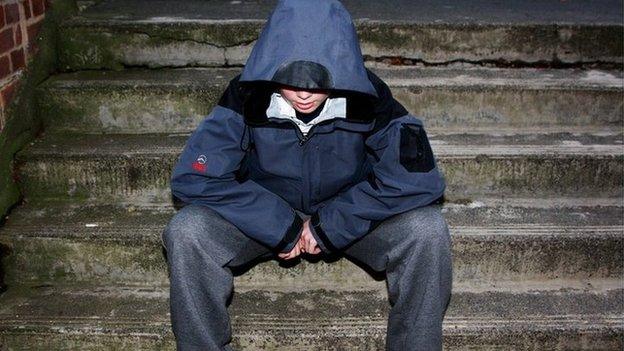School pupils 'disappearing' from system
- Published
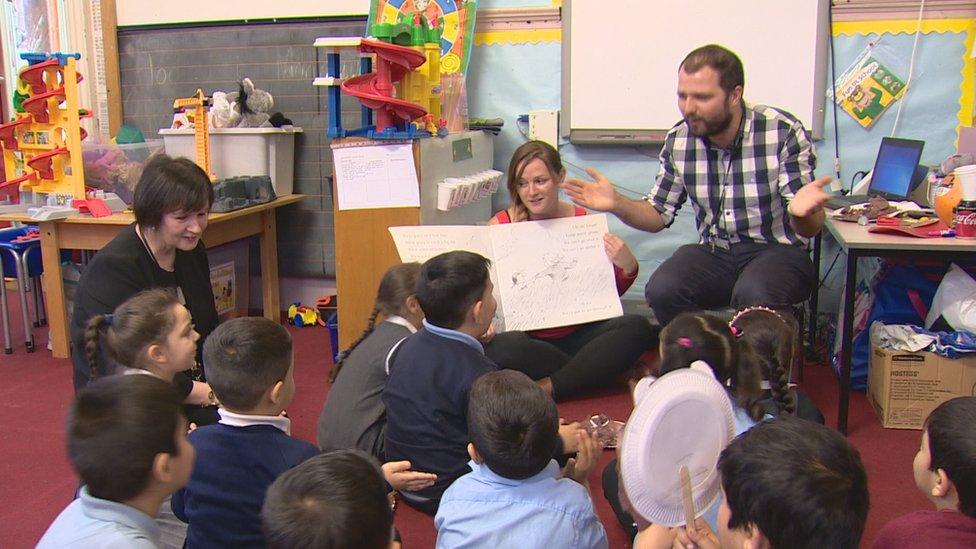
The pupils at Annette Street Primary are from many different ethnic backgrounds
Dozens of children have been reported missing by schools and never traced, according to new figures obtained by BBC Scotland.
At least 32 school pupils who went missing in the past three years have never been found, the figures indicate.
Some other local authorities - including Glasgow - admitted that they had children who were never traced but refused to say how many.
In many cases children may have moved abroad without the school being told.
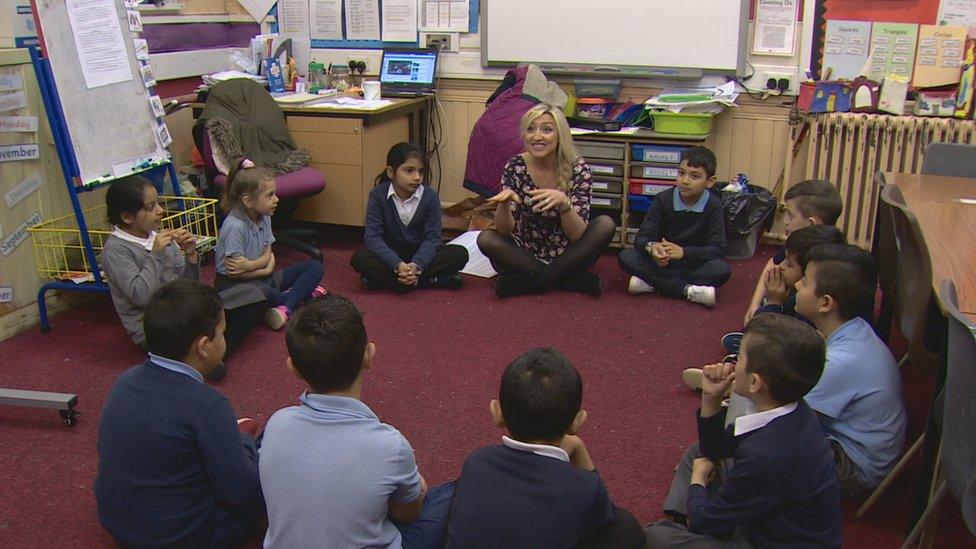
The school tries to get parents to realise the importance of a child's education
However, agencies said other children could have disappeared for more "sinister" reasons including abuse and forced marriage.
Local authority body Cosla said the highest incidences were found in Scotland's cities where there were "very mobile" populations and families from a range of backgrounds.
It said councils were doing what they could and cited the example of Glasgow, which employs Slovakian home-link workers to build contacts across Europe to try to track children who have returned to Europe.
'Missing in education'
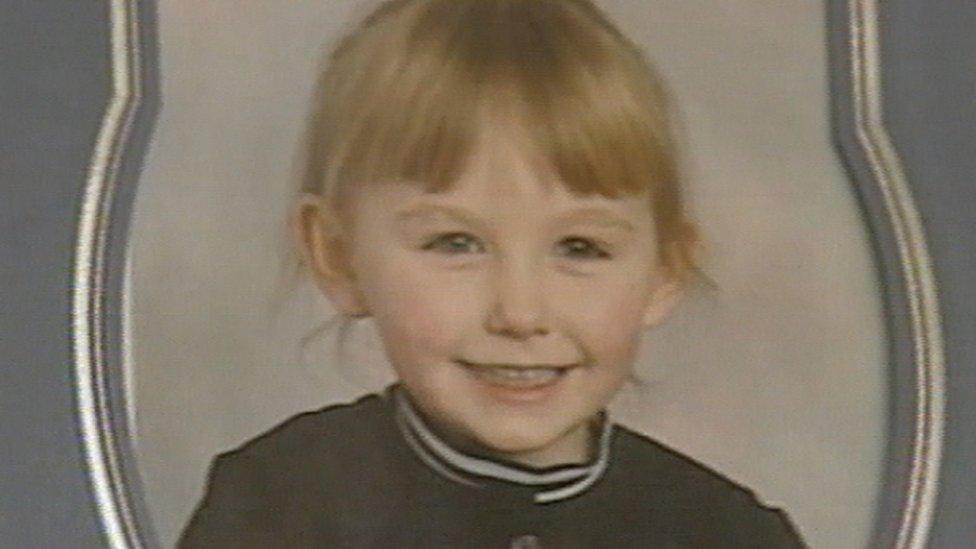
The murder of Danielle Reid sparked the new system for recording children
The system for recording and reporting children who were missing from school was created after the murder of five-year-old Danielle Reid in Inverness in 2002.
Danielle's body was not found for three months, partly because her mother told the authorities she had moved to a school in Manchester - but no-one ever checked.
Ministers announced the Children Missing in Education system in 2005 with a unique identifying number for each child to track pupils between schools and council areas.
Children are categorised as "missing in education" if the authorities are unable to track them down after four weeks or more - or two to three days in the case of vulnerable children .
The BBC sent Freedom of Information requests to all Scotland's 32 local authorities.
The responses indicate that about 390 children aged between four and 16 have been recorded as "missing in education" in each of the past three years.
In the past year, 139 of them went missing in Glasgow.
Councils told the BBC they followed clear and prompt guidelines when a child goes missing including contact with social work and the police where it is deemed necessary.
In some cases authorities have contacted Europol and Interpol to try to locate them.

'A lot of our families are transient by nature'
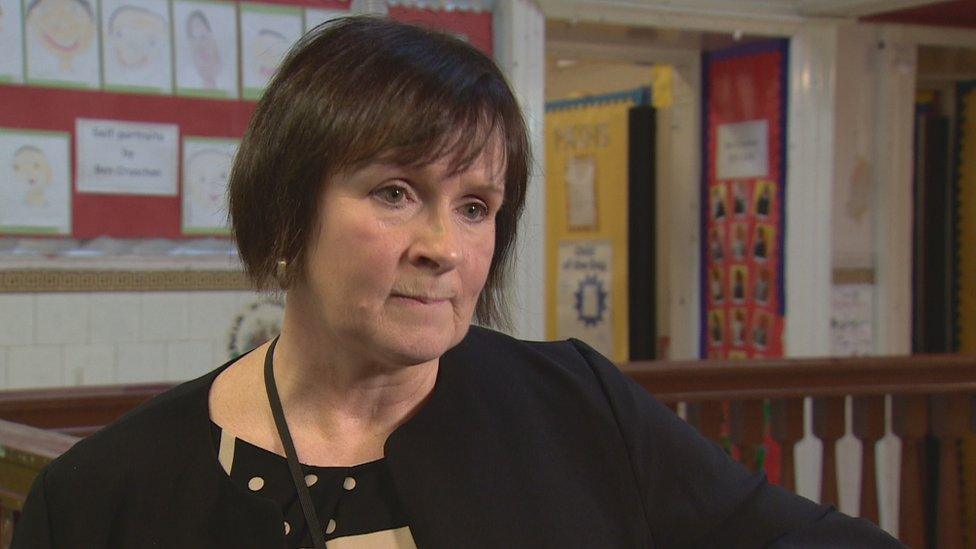
Shirley Taylor is the head teacher at Annette Street Primary in Govanhill
Annette Street Primary in the Govanhill area of Glasgow has about 200 children from a range of ethnic backgrounds.
The majority are Slovakian Roma, Romanian Roma and Scottish Pakistani.
Head teacher Shirley Taylor told BBC Scotland: "For the Roma community, travelling is a big part of their life.
"They don't always understand the need to tell people that is what they are planning to do. That is a tricky part of trying to manage the school."
Ms Taylor added: "So far this session we have several children who have not come back and we are not sure why that is.
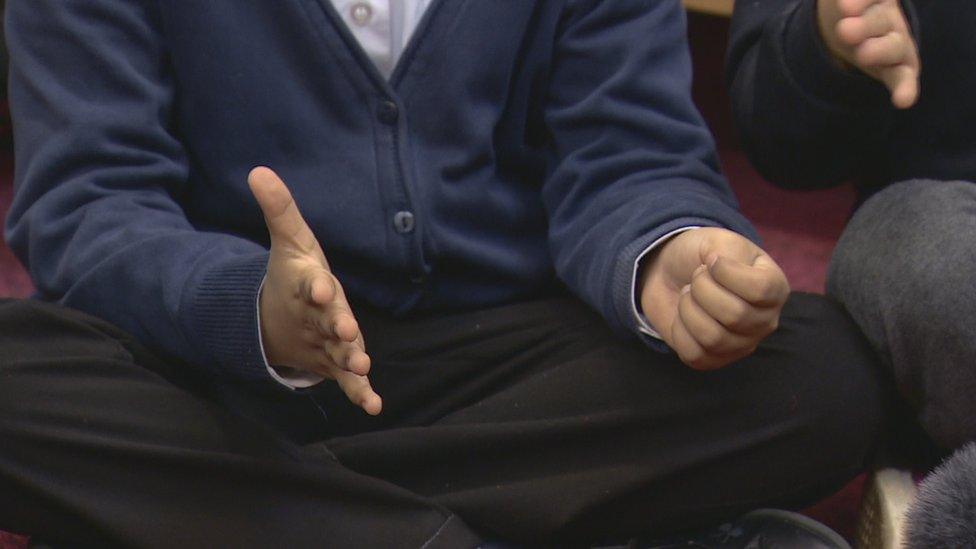
"It could be that the family have travelled to another country and they have found work somewhere else. We are following procedures for those families."
The head teacher said the school did a lot of work to explain to families, through interpreters, the expectation that their children would attend school every day.
She said that some parents had not had good experiences of education and some of the children have never been to school before.
Ms Taylor said parents were becoming more willing to inform the school of their plans.

'Clear guidance'
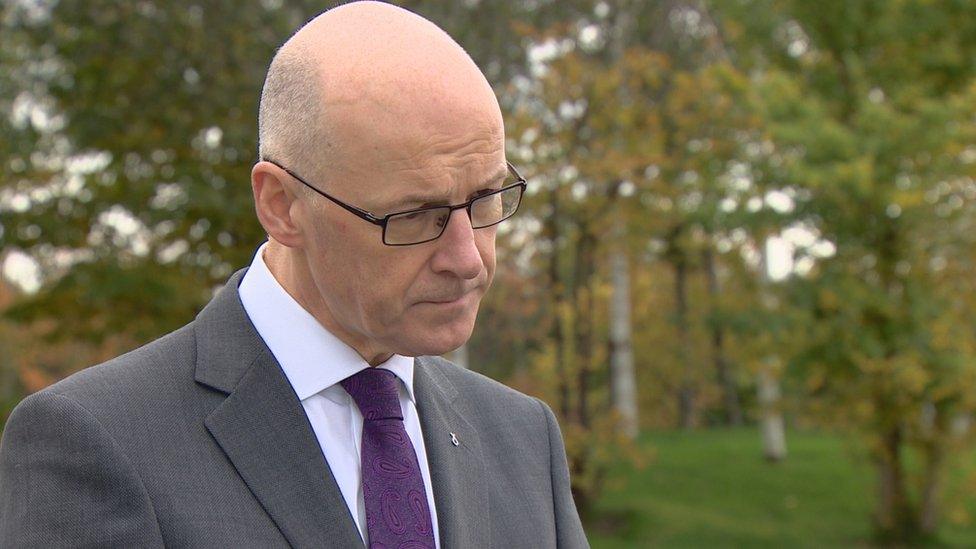
John Swinney said responsibility rested with local authorities
Education Secretary John Swinney told the BBC that "fundamentally" responsibility for ensuring children were in school rested with individual local authorities.
He said there was "very clear guidance" in place about how they should be monitoring these issues.
"Clearly if there are children that go missing from education, those issues have to be followed up properly and fully by the relevant authorities and I would expect that to be the case," he said.
A Cosla spokesman said keeping children safe was of the "utmost importance" and councils were taking a number of steps to monitor and trace school pupils.
"However, council services alone cannot solve this problem," he said.
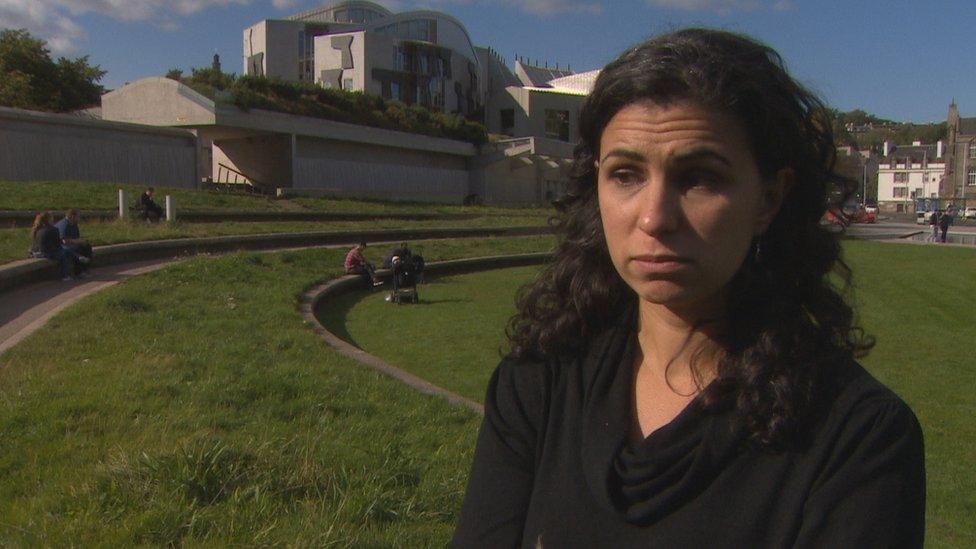
Angela Voulgari said authorities needed to get quicker at raising the alarm
Angela Voulgari, of the Bright Choices project which focuses on honour-based violence and forced marriage, said authorities needed to get quicker at raising the alarm but that improvements have been made in the past five years.
She said children could go missing for a range of reasons.
"They could have been taken abroad to be married, or for female genital mutilation or it could be very genuine reasons like the family moving back to their country of origin," Ms Voulgari said.
She said things become a lot more difficult when the child was not a British national.
"Whenever a child goes missing without good reason, without warning, that should always be a reason for concern," she said.
"It is important to ensure that every child in Scotland gets an education."
- Published16 December 2014
